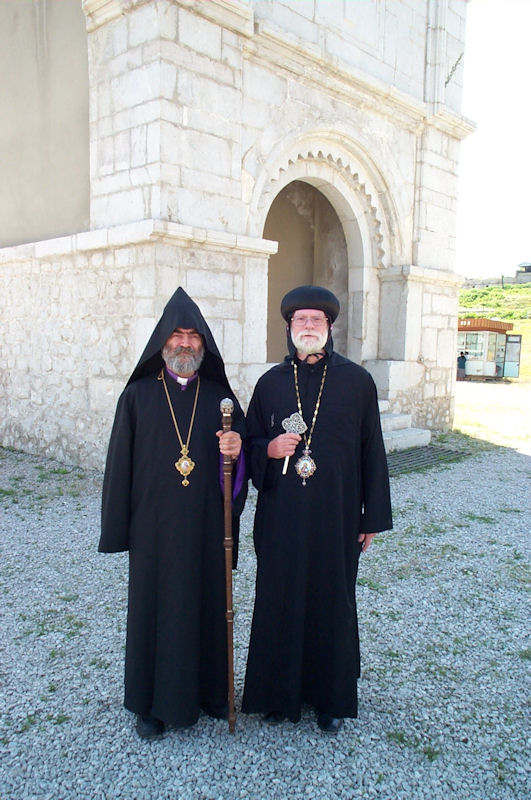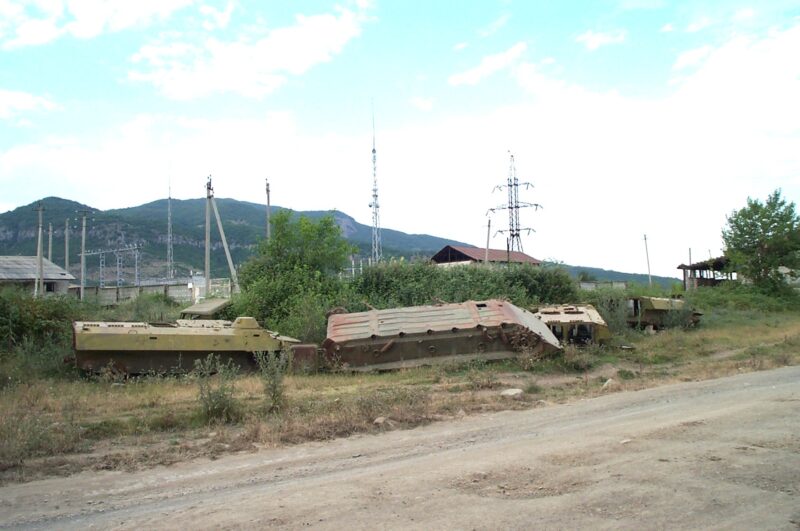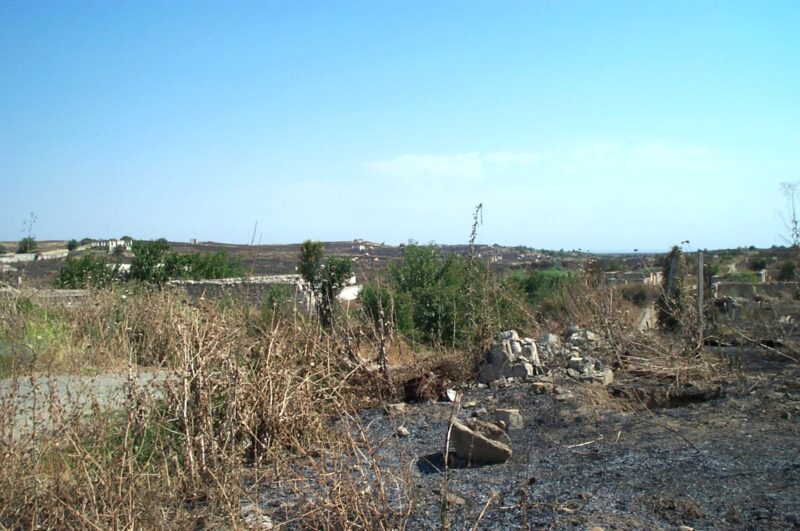The Nagorno-Karabagh War
The current war being fought between Armenia and Azerbaijan over the ancient territory of Nagorno-Karabagh is a source of much grief. Originally named Artsakh, it was an ancient Armenian territory but was later absorbed into the Ottoman Empire and like all native Armenians living in Turkey suffered Genocide at the hands of the Turks during 1915-1923. Following the eventual fall of both the Ottoman and Imperial Russian Empires these ancient Armenian territories became part of the Soviet Union, although fighting occurred in 1920 between the Christian Armenians and Islamacists and broke out again during 1988-1994 when the republics of Azerbaijan and Armenia regained their independence although Christian Artsakh sought independence from Islamic Azerbaijan.

During August 2003 Abba Seraphim visited the numerous ancient churches and monasteries in ancient Artsakh and was the guest of Archbishop Pargev Martirossyan, the prelate of the Armenian Diocese of Artsakh (which covers Nagorno-Karabagh and adjacent liberated territories of historic Artsakh) belonging to the Armenian Apostolic Church.

During his visit Abba Seraphim encountered with increasing frequency burnt-out villages as well as the khaki shells of burnt-out tanks at the side of major roads. At one junction he even counted nine piled together, a potent reminder of the fierceness of the fighting in this area and of the human sacrifice to liberate it.

Whilst obviously sympathising with the desire of the Armenians to regain their historic independence, Abba Seraphim deplores the fact that this has not been achieved by diplomatic negotiations but rather that war has again resumed and he hopes and prays that peace and harmony between Armenia and Azerbaijan may soon be achieved and that the powerful neighbouring states may be able to support a non-violent and harmonious settlement which will bring an end to hostilities and restore Armenian hegemony over part of its original homeland.
